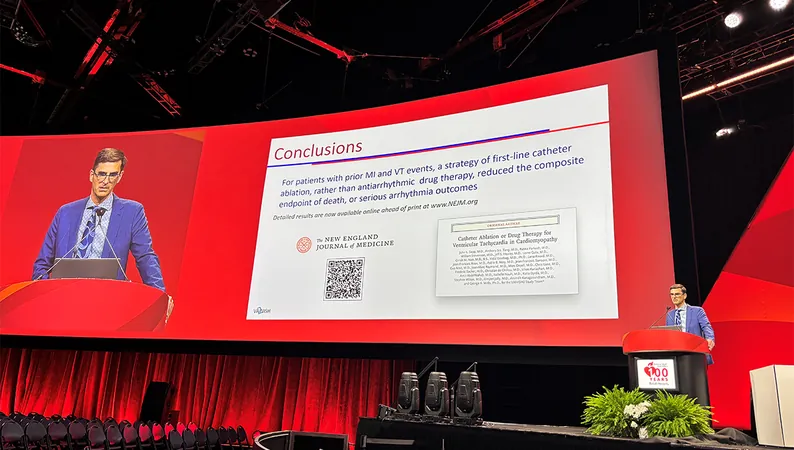
Shocking Discovery: Chronic Stress Ages Your Skin Faster Than You Think!
2024-11-21
Author: Nur
A recent groundbreaking study reveals that chronic psychological stress can significantly accelerate skin aging, shedding light on an often-overlooked aspect of wellness. Conducted by a team led by Muriel Pujos from COTY Research and Development in Monaco, this research uncovers how psychological stress impacts skin homeostasis and overall appearance.
While previous studies have examined biological markers of stress and their effects on the immune system, little has been done to directly correlate stress with visible signs of skin aging. Notably, the team pointed out that prior research has primarily focused on occupational stress, leaving a gap in understanding how chronic stress affects a wider population beyond specific work environments.
To address this, Pujos and her colleagues aimed to investigate measurable changes in the skin associated with moderate chronic psychological stress through a robust clinical study involving 40 women aged 35 to 55. Participants were selected based on strict criteria, ensuring that they maintained a healthy lifestyle, including no smoking, no alcohol consumption, and adequate sleep, while avoiding excessive sun exposure.
The women were split into two groups based on their stress levels determined by the Perceived Stress Scale questionnaire: those with mild stress and those with moderate stress. The study aimed to explore how chronic feelings of pressure and being overwhelmed affect skin health, specifically evaluating skin's total antioxidant capacity through advanced testing methods like the FRAP assay and 3D imaging for skin texture analysis.
Surprisingly, the findings highlighted a dramatic difference between the two groups. Women in the moderate stress category exhibited compromised skin barrier functions and a marked reduction in antioxidant capacity, with results indicating a mean reduction of 12.2% in antioxidant levels compared to their mildly stressed counterparts. Furthermore, those experiencing higher stress levels showed more significant signs of skin aging, including fine lines and roughness in skin texture.
Statistical analyses confirmed these differences with considerable significance, suggesting that elevated stress hormone levels such as cortisol and epinephrine adversely affect skin health at a cellular level, influencing everything from extracellular matrix synthesis to wound healing.
The implications of this discovery are profound. By acknowledging the link between mental wellness and skin health, individuals may now reconsider the importance of stress management in maintaining a youthful appearance. The authors emphasize that this initial analysis lays the foundation for further research into the intricate relationship between psychological stress and skin aging.
Women everywhere are now urged to prioritize their mental health not just for psychological well-being, but as a crucial step in skin care. With these insights, stress relief strategies could become the next big trend in anti-aging skincare routines! Stay tuned for more updates as further studies on this pivotal topic emerge.


 Brasil (PT)
Brasil (PT)
 Canada (EN)
Canada (EN)
 Chile (ES)
Chile (ES)
 España (ES)
España (ES)
 France (FR)
France (FR)
 Hong Kong (EN)
Hong Kong (EN)
 Italia (IT)
Italia (IT)
 日本 (JA)
日本 (JA)
 Magyarország (HU)
Magyarország (HU)
 Norge (NO)
Norge (NO)
 Polska (PL)
Polska (PL)
 Schweiz (DE)
Schweiz (DE)
 Singapore (EN)
Singapore (EN)
 Sverige (SV)
Sverige (SV)
 Suomi (FI)
Suomi (FI)
 Türkiye (TR)
Türkiye (TR)